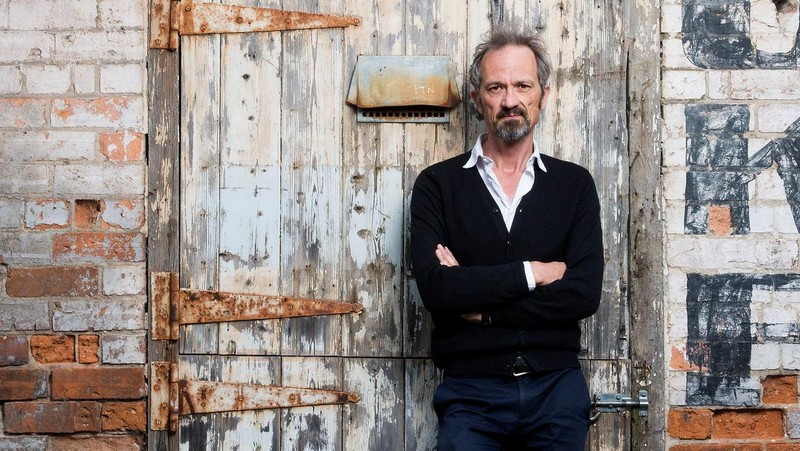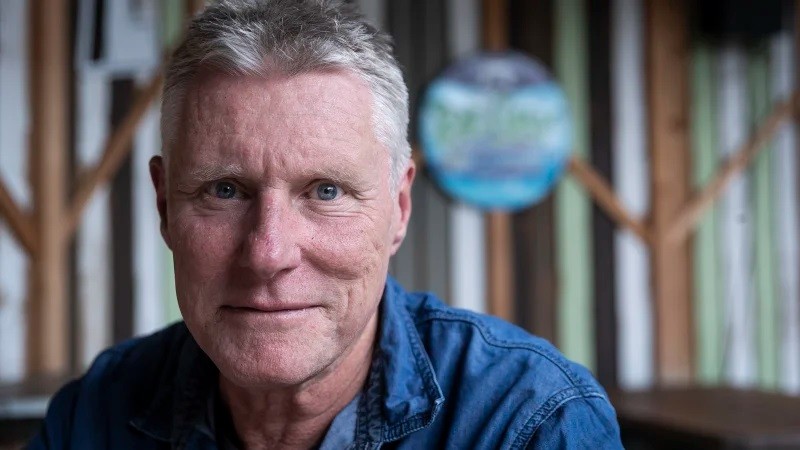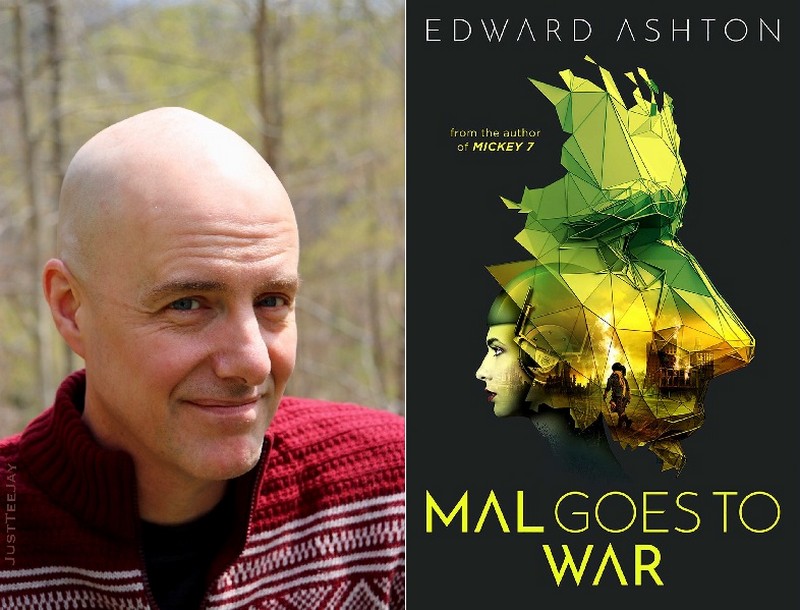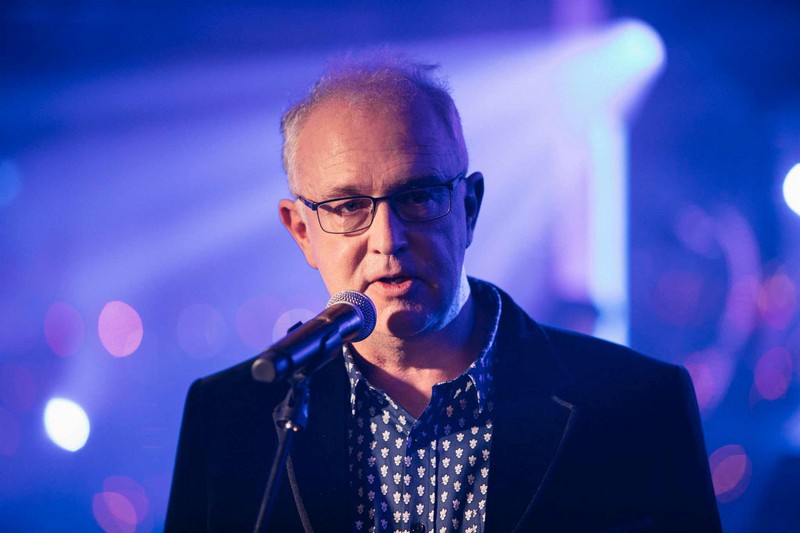 Australian author Chris Womersley has an eclectic back catalogue; even his two connected novels – Cairo and The Diplomat – are very different creatures. But there are a few through lines, and one of those is crime. While very little of Womersley’s work fits neatly in the usual slots of crime genre, the narratives are often driven by crimes from art fraud to drug dealing. That said, his latest book fits the mould more firmly. Ordinary Gods and Monsters is a kids-on-bikes coming-of-age story set in the mid-1980s (probably 1985, given the movie references) anchored around a teenage investigation into a hit-and-run.
Australian author Chris Womersley has an eclectic back catalogue; even his two connected novels – Cairo and The Diplomat – are very different creatures. But there are a few through lines, and one of those is crime. While very little of Womersley’s work fits neatly in the usual slots of crime genre, the narratives are often driven by crimes from art fraud to drug dealing. That said, his latest book fits the mould more firmly. Ordinary Gods and Monsters is a kids-on-bikes coming-of-age story set in the mid-1980s (probably 1985, given the movie references) anchored around a teenage investigation into a hit-and-run.
Nick Wheatly lives in outer-suburban Melbourne. He has just finished his final school exams but has no idea what he is going to do with the rest of his life. Nick’s older brother Simon has already left home and his abusive father has moved out; he has a platonic but unrequited relationship with literal girl-next-door Marion that has never progressed past the friend zone, and now it seems she is dating. And Nick is about to start his first job as a burger-flipper at the local McDonald’s.
When Marion’s father is killed in a seeming hit-and-run accident, Nick’s world is thrown into a loop. He goes to source some marijuana for Marion for after the funeral, and the local drug dealer, Becky, convinces him to use her ouija board to contact Marion’s father. The ouija board gives him a message: ‘Morris’. So when Nick then meets a man called Morris at the wake, he starts to think that maybe the spirits are talking to him and the accident was not an accident at all.
This is not the first time Womersley has delved into Australian suburbia. His short story collection A Lovely and Terrible Thing also explored the intersection of the supernatural and the suburban. And again here, Womersley excels in his depiction of this time and place:
I lay back and dreamed. I listened to the noise of the suburbs. The crickets, the occasional sound of a distant TV, the hum of cars passing on the main road. There was magic out here. I imagined Mrs Thomson lying on her bed reading a novel, Mrs McPhee pounding away at her piano while a cigarette burned down in an ashtray on its polished lid … A bunch of kids had piled into a Woolworth’s shopping trolley that was careering into the side of a parked car down near the McDonald’s.
This then was my little domain, all I’d ever known. It was not Valhalla or Nirvana or Heaven. There was no Buddha or Odin or Achilles. It was suburbia, the kingdom of ordinary gods and monsters.
There are plenty of actual monsters, too, such as Nick’s father, a man whose past outbursts often required the family to take refuge next door. And as Nick and Marion start to investigate her father’s death, they find themselves confronting drug dealers, bikies and a few softly spoken but obviously dangerous criminals. Despite the increasing danger, the two are determined to keep going, including visiting the scene of the crime:
By unspoken agreement, we slowed down as we approached the street and hopped off our bikes to wheel them the rest of the way. It was hillier around here than in our part of the neighbourhood. There was no one around, hardly any lights on …
Automatically, I looked at the place on the road she had indicated and then gazed all around, seeking clues, I suppose – although what kind I couldn’t exactly say. Blood? Scraps of clothing? That police tape I’d seen on TV shows?
They do make some headway, so that the whole enterprise builds to a tense and lengthy chase as the two get closer to the truth.
The supernatural element is more muted here than in Womersley’s short stories. The ouija board only seems to work when being controlled by someone who wants Nick to know something he otherwise shouldn’t. and even then, Nick is incredibly stoned at the time. In fact, drugs play a significant part of the narrative, further complicating the question of whether something supernatural is actually going on. Womersley took a similarly ambiguous approach to the supernatural in his historical novel City of Crows.
But drugs aside, Ordinary Gods and Monsters sits firmly in the ‘kids-on-bikes’ genre. A kids-on-bikes story is one in which a group of kids have a coming-of-age adventure while riding their bikes around suburbia. There are plenty of examples from the era in which this book is set, including ET, The Goonies and Australia’s own BMX Bandits. But there have been plenty since, most of them also set in this era. Probably the most well-known recent example is Stranger Things. Many kids-on-bikes stories focus on slightly younger teens and have a science fiction or supernatural element, although one that is usually more front and centre than here. For those interested in this trope there is a great recent discussion of it on the Imaginary Worlds podcast.
While Womersley draws on the nostalgia for the 1980s, the kids-on-bikes and teenagers-investigating-crimes and coming-of-age tropes, he never transcends these elements to deliver something really insightful or new. Nick is in love with the girl-next-door, he gets bullied by the local drug dealer at his job at McDonald’s, he is dealing with his parents’ divorce and the sale of his childhood home. Marion is his feisty, risk-taking companion who drags him into dangerous situations. Nick’s main nemesis, Stretch, is threatening but also turns out to be easily manipulated and a little pathetic. Readers have seen and read this (or variations of this) before, down to the kids-on-bikes being pursued by the bad guys in a menacing car, looking for places that only bikes can go:
There was no time for deliberation. We swung across the road, crunched our bike tyres over the gutter and careened down the greasy track into the Cutting. Branches grabbed witchily at my arms and face, scratched me with their thorns. At the bottom, it was already swampy. The train tracks were long gone, leaving an untended ravine that was wide in parts and narrow in others. We skidded about on our bikes and paused to consult.
The recent success of 1980s-set media shows there is an audience of Gen-Xers looking to dip back into their teenage years. Womersley himself admitted in an interview with the ABC’s Book Show that some of the scenes are drawn from his own experiences. While it does not have some of the depth of Womersley’s other work, in that vein it delivers. Nick is an engaging narrator in a lovingly described suburbia who is forced to confront some harsh realities but remains innocent enough to still believe there is some magic left in the world.
This review first appeared on Newtown Review of Books.
Robert Goodman
For more of Robert’s reviews, visit his blog Pile By the Bed
Other reviews you might enjoy:
- The Diplomat (Chris Womersley) – book review
- Bereft (Chris Womersley) – book review
- Ordinary Monsters (J.M. Miro) – book review

Robert Goodman is a book reviewer, former Ned Kelly Awards judge and institutionalised public servant based in Sydney. This and over 450 more book reviews can be found on his website Pile By the Bed.





